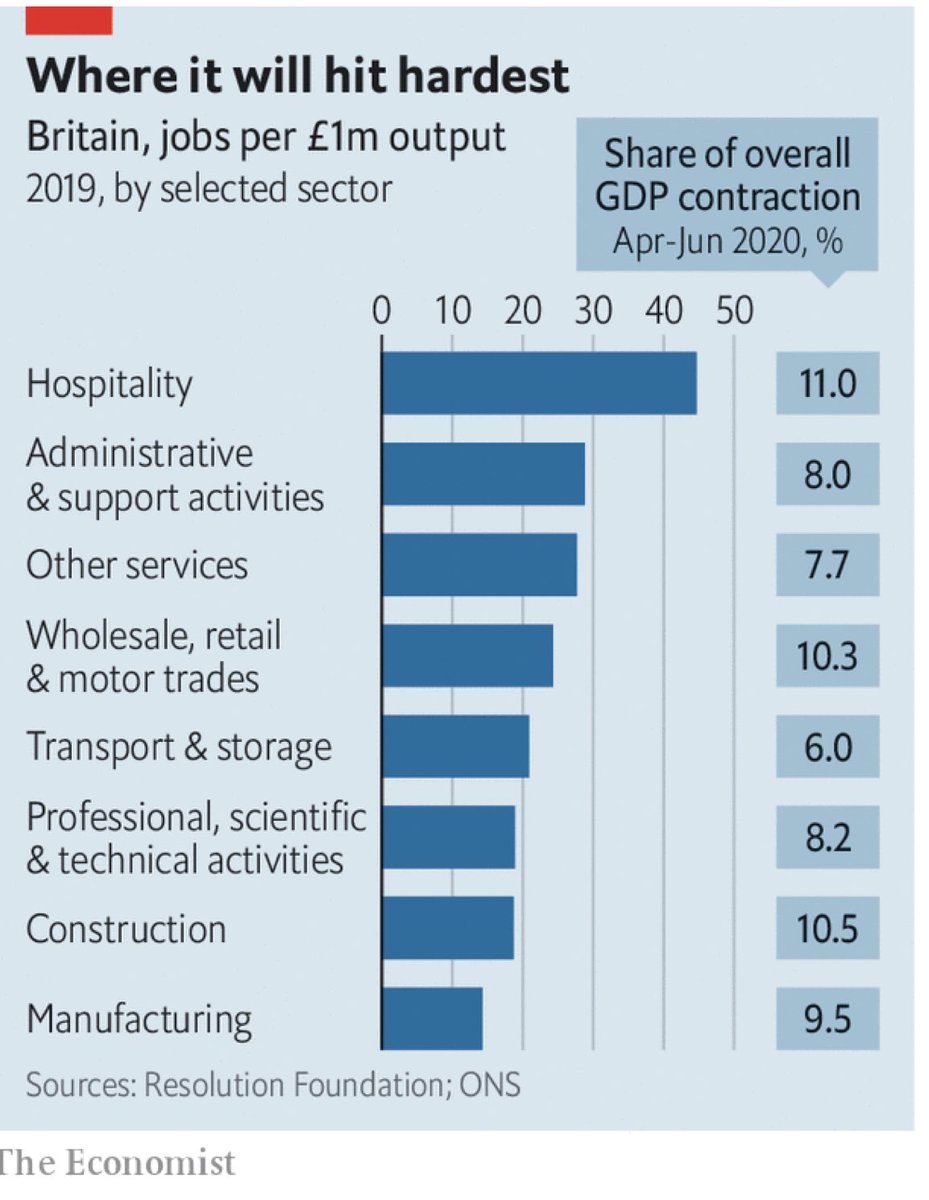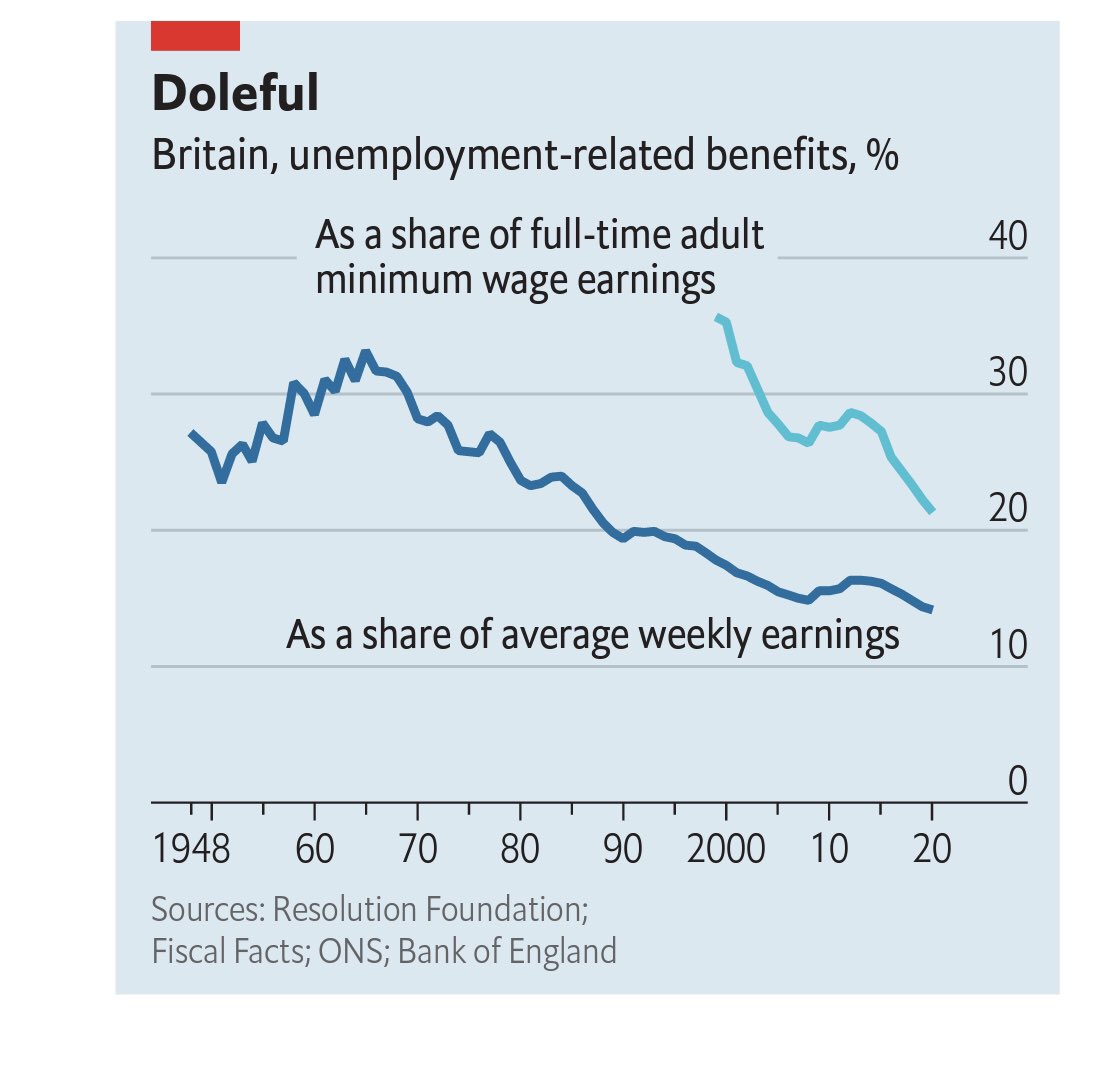On the coming rise in unemployment. https://www.economist.com/britain/2020/08/22/mass-unemployment-threatens-britain
There’s a sense in policy making circles that the reforms of the 1980s and 1990s have left Britain with a very flexible labour market: one that clears quickly and where adjustments happen mainly through real wages rather than job losses.
Certainly the ratio of output falls to unemployment rises was much more favourable in the 2008-09 recession compared to the early 1990s or the 1980s.
But, and it’s a big but, that might be down to the nature of those recessions rather than the model as a whole.
But, and it’s a big but, that might be down to the nature of those recessions rather than the model as a whole.
The European response to Covid was to protect jobs through furlough/short time work etc. The US let layoffs rise but boosted incomes through big (temporary) increases in unemployment insurance. Europe focussed on jobs, the US on people.
Furlough is tapering down. The UK is moving from a European response to a US one. But without the corresponding hikes in payments to the unemployed.
(And thread done).
(And thread done).

 Read on Twitter
Read on Twitter



